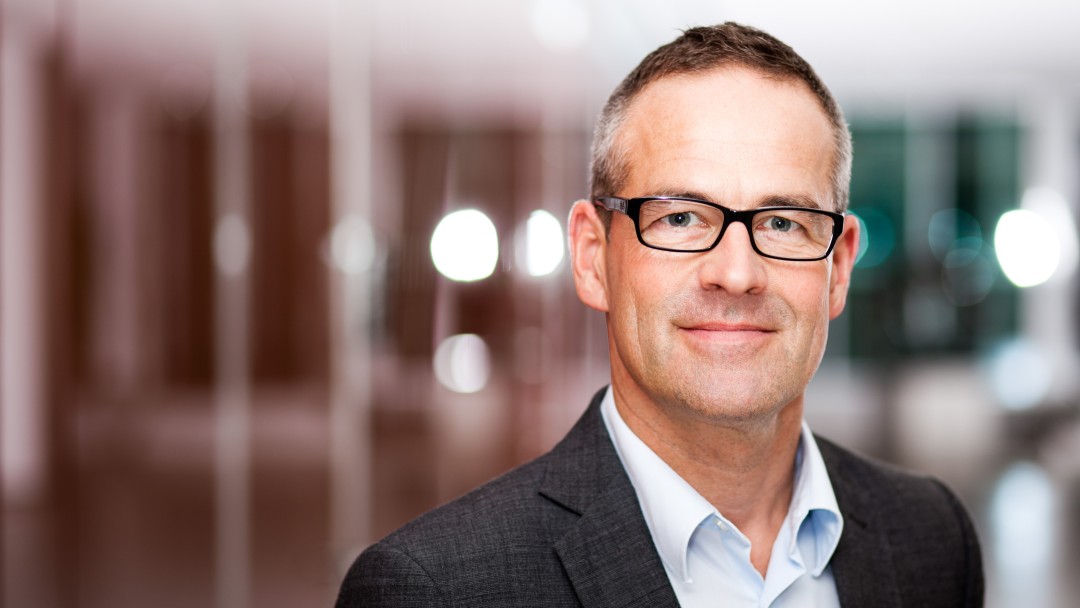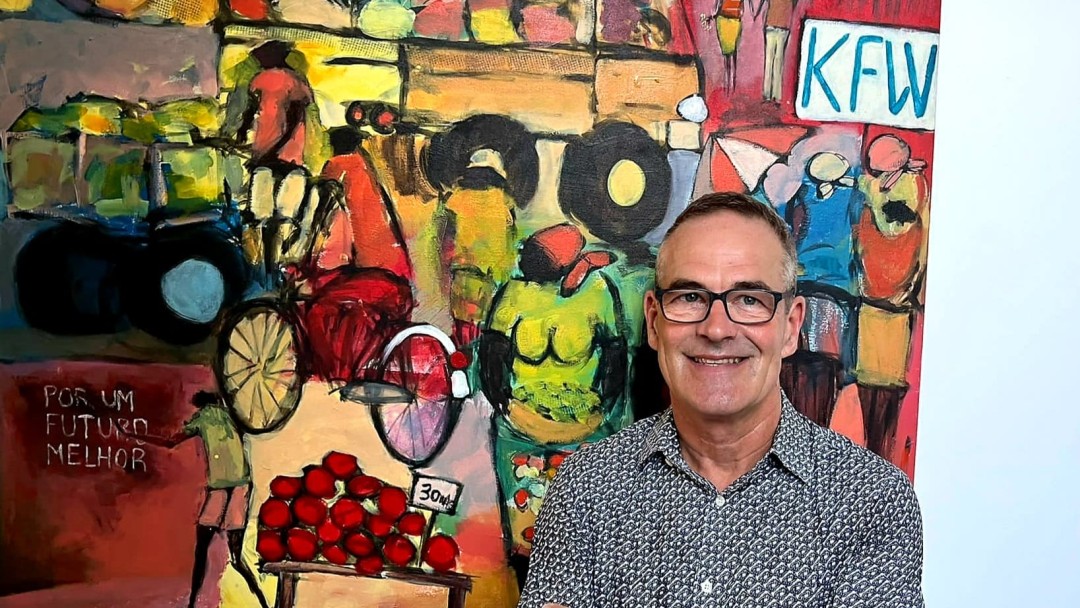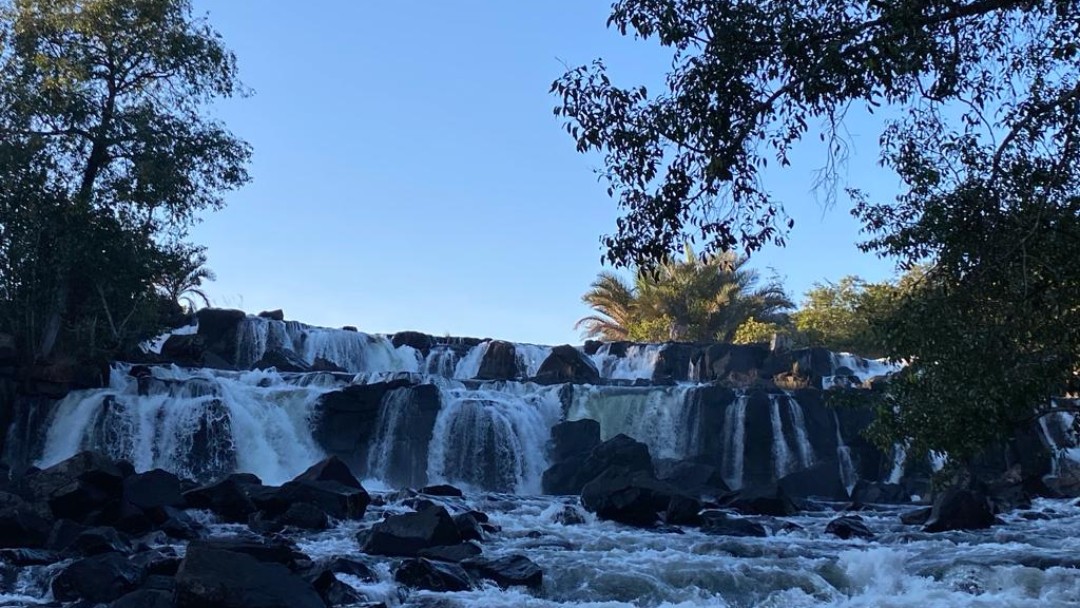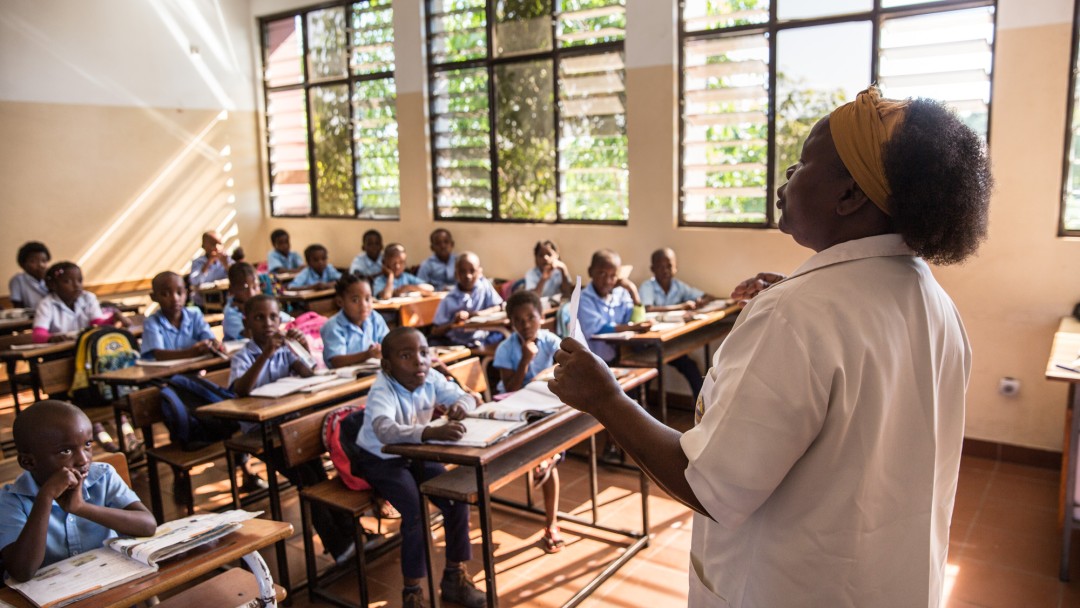INTERVIEW WITH STEFFEN BEITZ
An interview with the Director of KfW in Mozambique. In the interview with Friederike Bauer, Steffen Beitz talks about how polite people are and where the main obstacles to faster progress lie.

I have never experienced such great friendliness and politeness from people in any other country. This applies to all generations and levels of education and even to a city like Maputo, with a population of over a million and where people acknowledge each other on the street – at home, this would only happen in the villages. I live 700 metres from the KfW office and walk the route. On my way there, everyone I meet greets me. We could do with taking a leaf out of their book.
Yes, in the towns and on the coast. As early as the 19th century, the Portuguese king made a very rational decision to allow Portuguese men to marry indigenous women to secure the survival of the colony. In addition, Mozambique has a very long coastline of more than 2,000 kilometres, along which people from Asia and the Arab world have entered the country. And of course, they all live alongside and with each other. This is something else that other countries could learn from Mozambique.

Mozambique has great potential: it has great natural resources and many talented young people. But there is a big urban-rural divide. Maputo offers a very high standard of living. Here you don't necessarily notice that you are in one of the poorest countries in the world. Poverty becomes tangible when you travel around the country. Around 40% of people in Mozambique are illiterate, half have no electricity and around 70% have to live on less than 2.15 dollars per day. There is a small, rich upper class and a small urban middle class. You are faced with the remaining, primarily rural, population who live from hand to mouth. This is especially true of women. There are also jihadists who terrorise the country, especially in the north, and cyclones that regularly cause major damage. Mozambique has difficult overall conditions, also for historical reasons.
The Portuguese colonies were late in gaining independence, including Mozambique in 1975. Back then, for example, there were no teachers left in the country because the Portuguese had not trained any locals. This meant that Mozambique had to start from scratch – not just in the education sector. Just two years later, in 1977, a civil war began; a proxy war in the conflict between East and West that lasted for 15 years. After that, the whole country was traumatised, and the ground littered with landmines that have yet to be cleared to this day. This was followed by a phase of stability and development, including democratisation. But in 2016, Mozambique was shaken by a corruption scandal: the government had secured billions in loans from state-owned enterprises in an unconstitutional manner. Most of the money disappeared through a large-scale bribery and kickback scheme. This triggered a crisis of confidence at home and abroad, from which Mozambique has still not fully recovered. Devastating cyclones followed in 2019, followed by COVID.
Correct. All of this has taken a toll on the economy, causing it to shrink by 1.2% in 2020. Forecasts for the coming years look more favourable again, at 4 to 5%. But they all require a boost to the gas business. Mozambique has enormous gas deposits that it will be able to export in the future, including as natural gas liquids. However, the large gas deposits are precisely where the militant jihadists are causing trouble, which is delaying the desired gas deal.
Yes, but how the income from the gas business is used is crucial for the country's development. A sovereign wealth fund has been set up with Norwegian support, among others, which will hopefully lead to investments that will benefit all Mozambicans. Overall, the government intends to expand its energy exports. In addition to gas, this also includes renewable energies, primarily hydropower, which currently accounts for 80% of the energy mix. Mozambique is already exporting electricity to neighbouring countries. The aim here is to become a regional hub for energy. The demand for electricity from countries such as Zimbabwe, Zambia, Malawi and particularly South Africa is high.

Investments from home and abroad are urgently needed. This includes the energy sector as well as agriculture, which also has an enormous potential but is still very much a subsistence economy. Mozambique is a very young country; every year 500,000 young people enter the labour market. They need a good education and vocational training and then employment. Further expansion of the education sector is therefore a key prerequisite for further progress. However, there is currently a shortage of 9,000 teachers, for example.
Mozambique is a presidential republic; there are elections and a multi-party system. The next elections will take place in autumn; the current President Filipe Jacinto Nyusi will be unable to run, having already served two terms in office. It will be exciting to see who will take over. Incidentally, the two former civil war parties Frelimo and Renamo still dominate the political stage today. It is positive to note that they concluded a definitive peace agreement in 2019, which has largely been implemented.

The main objective of the German financial cooperation is the fight against poverty. This is done through projects involving basic education and vocational training, the energy sector and the promotion of municipal infrastructure and favorable loans for small agricultural enterprises. In terms of energy, Germany is the third-largest donor and is making a significant contribution to Mozambique further expanding the production of renewable energy sources, especially in the form of solar plants and hydropower stations, and modernising existing plants. We are also promoting the expansion of the electricity grid. In just a few years, all of this has resulted in several million additional households receiving electricity. In 2014, just 16% of the population had electricity, today it is more than 50%. Within ten years, a giant leap forward has been made, in which Germany also played its part.
There is a considerable amount of bureaucracy and the pace of implementation is not yet fast enough. Added to this are the overall difficult conditions that I have already talked about, which of course also affect our work.
I am actually hopeful because I see how much strength and how much talent there is in this country. But there is still some work to be done: at the moment, Mozambique is a country with great potential that it has yet to fully exploit.
Share page
To share the content of this page with your network, click on one of the icons below.
Note on data protection: When you share content, your personal data is transferred to the selected network.
Data protection
Alternatively, you can also copy the short link: kfw-entwicklungsbank.de/s/enzBx42r
Copy link Link copied